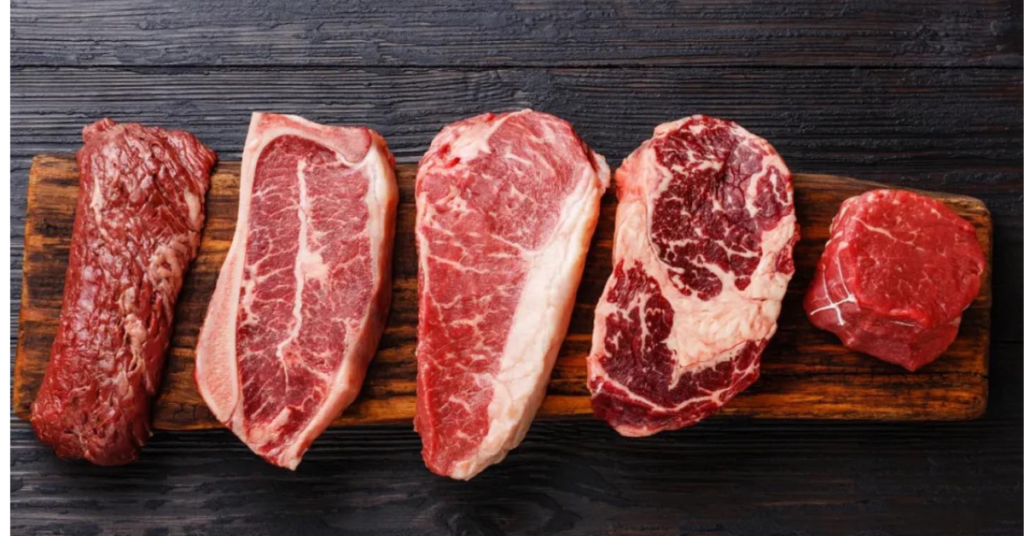In an era where dietary choices seem more abundant and varied than ever before, the pursuit of health and wellness has taken center stage. Gone are the days when a simple buttered roll sufficed for sustenance.
Today, the world of nutrition is a labyrinth of options, each promising to unlock the secret to weight loss, muscle gain, mental clarity, and overall well-being.
As a result, diet culture has woven itself into the fabric of our lives, with millions embarking on dietary journeys each year.
In 2023, the weight management market was valued at a staggering $288 billion, a testament to the pervasive nature of dieting.
With an ocean of dietary advice available online, it’s easy to become overwhelmed and fall prey to unreliable sources.
To navigate this complex landscape, it’s essential to gain a better understanding of the most common types of diets.
Armed with this knowledge, you can make informed choices tailored to your lifestyle and goals, whether that involves shedding pounds, building muscle, or enhancing overall health.
Here, we present a comprehensive guide to the diets you should know about:
- The Ketogenic Diet
- Intermittent Fasting
- Mediterranean Diet
- Carnivore Diet
- Paleo Diet
Before delving into these dietary approaches, it’s crucial to clarify that no single diet holds a monopoly on health and well-being.
The key to weight loss, muscle gain, and improved health primarily lies in maintaining a caloric balance, where the calories burned exceed those consumed.
Thus, the choice of diet should revolve around personal preferences and sustainability.
Moreover, scientific research underscores the importance of food quality over macronutrient composition (protein, carbohydrates, and fats).
Regardless of your dietary preference, focusing on consuming nutrient-dense foods should remain a priority.
Additionally, some diets may inadvertently lead to micronutrient deficiencies (vitamins and minerals), which can adversely affect health.
With these principles in mind, let’s explore the most popular diets of 2023 and understand their key characteristics.
The Ketogenic Diet
The Ketogenic Diet, commonly referred to as Keto, has captured the spotlight in recent years.
It is characterized by a high fat intake (65-75% of daily calories), moderate protein consumption (20-30%), and minimal carbohydrate intake (approximately 5% or less).
This dietary approach aims to induce a state of ketosis, where the body uses ketones from fat as its primary energy source, rather than carbohydrates.

Keto enthusiasts consume foods such as avocados, eggs, and carb-free cheeseburgers, prioritizing fats over carbs.
While there are claims of its effectiveness in treating various conditions, including cancer and respiratory illnesses, research has suggested that when matched for calories, Keto is no more effective for weight loss than other diets.
Intermittent Fasting
Intermittent fasting, often abbreviated as IF, is a dietary strategy that has gained immense popularity in recent years.
Unlike traditional diets, IF doesn’t prescribe specific foods but instead dictates when you should eat.
It involves consuming all your daily calories within a designated time window and abstaining from food for the remainder of the day.
Various IF protocols exist, with the 8:16 method being the most common. In this approach, individuals fast for 16 hours and confine their eating to an 8-hour window.
However, flexibility allows for adjustments, such as 10:14, and 16:8, or even extreme variations like eating all daily calories within a single hour.
The rationale behind IF is that by compressing the eating window, individuals naturally consume fewer calories, aiding in weight loss.
Research has also suggested that IF may improve insulin resistance, reduce oxidative stress, stabilize blood sugar levels, and lower the risk of strokes.
Mediterranean Diet
The Mediterranean Diet is inspired by the culinary traditions of countries bordering the Mediterranean Sea, such as Greece, Italy, Spain, Lebanon, and Turkey.
These regions are renowned for their longevity, with citizens often living well into their 80s.
This diet emphasizes heart-healthy foods, including vegetables, fish, fruits, whole grains, olive oil, and nuts.
Red meat consumption is limited, and dairy is moderate, with an emphasis on high-quality sources like yogurt and cheese.

Beyond its dietary components, it’s essential to note that Mediterranean populations often exhibit superior lifestyle habits, such as reduced sedentary behavior, lower rates of smoking and alcohol consumption, and better sleep patterns.
Studies have indicated that the Mediterranean Diet not only leads to weight loss but also enhances the reversal of diabetes and cardiovascular diseases when consistently followed.
Carnivore Diet
In stark contrast to conventional wisdom promoting the consumption of a wide variety of fruits and vegetables, the Carnivore Diet advocates an exclusively animal-based approach.
Devotees of this diet restrict their intake of animal products, including meat, cheese, milk, animal fats, and eggs. Some versions exclude eggs and dairy entirely.

This zero-carb diet, often considered a variation of Keto, prioritizes fat and protein while entirely omitting fruits, vegetables, grains, and legumes.
While protein’s thermic effect can contribute to weight loss, critics argue that the exclusion of fruits and vegetables may elevate the risk of heart disease, cancer, and overall mortality.
Paleo Diet
The Paleo Diet, also known as the Caveman Diet, draws inspiration from the eating habits of our ancient ancestors.
It encourages the consumption of meat, fish, vegetables, fruits, nuts, and seeds while avoiding grains, dairy, processed foods, beans, legumes, and added sugars.

Studies have indicated that adhering to the Paleo Diet can lead to weight loss, reduced blood pressure, and improvements in various blood markers.
However, it’s crucial to acknowledge that more research is needed to comprehensively assess its long-term health effects.
Additionally, some experts caution against the exclusion of whole grains, which have demonstrated benefits in preventing heart disease and diabetes.
Conclusion
Navigating the world of diets can be a bewildering journey, with a plethora of options vying for your attention.
However, it’s important to remember that there is no one-size-fits-all approach to nutrition.
Weight loss, muscle gain, and overall health are primarily influenced by the balance between calories consumed and expended.
Moreover, the quality of food is paramount, with nutrient-dense choices holding the key to well-being.
When selecting a diet, consider your individual preferences, dietary requirements, and long-term sustainability.











